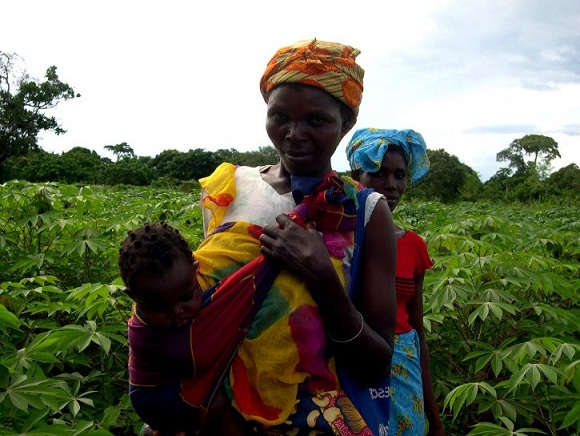Women and girls trapped in poverty are more likely to die prematurely due to lack of adequate health care, especially if they belong to minority groups or are trapped in a conflict environment.
 This is revealed in a report by the UN Population Fund (UNFPA) that calls for the empowerment of women to achieve innovative solutions. The research states that more than half of preventable maternal deaths occur in countries in crisis.
This is revealed in a report by the UN Population Fund (UNFPA) that calls for the empowerment of women to achieve innovative solutions. The research states that more than half of preventable maternal deaths occur in countries in crisis.
As an example, the report reveals that African women are 130 times more likely to die from complications of pregnancy or childbirth than those living in Europe and North America.
At the same time, UNFPA warns of the impact of racism, sexism and other forms of discrimination on progress on sexual and reproductive health issues. According to the Fund’s director, Natalia Kanem, there is a kind of polarising dialogue, a divisive kind of attitude and, in a way, a “second-class citizen” attitude to women’s and girls’ rights.
Progress is slowing or stalling in a number of key areas, she said of the publication.
In a world where a quarter of women cannot say no to sex with their partner and nearly one in ten have no say over contraception, 800 die every day in childbirth, a figure unchanged since 2016.
 Of these, nearly 500 deaths occur in countries experiencing humanitarian crises and conflicts, according to the report, “Intertwined Lives, Threads of Hope: Ending Inequalities in Sexual and Reproductive Health and Rights”.
Of these, nearly 500 deaths occur in countries experiencing humanitarian crises and conflicts, according to the report, “Intertwined Lives, Threads of Hope: Ending Inequalities in Sexual and Reproductive Health and Rights”.
Other data confirm a clear disparity between developed and developing countries in access to contraceptives, safe delivery services, respectful maternity care and other essential services.
Even within these regions, the text acknowledges pockets of inequality among disabled or economically or socially marginalised groups such as women of African descent, who have a maternal death rate in the United States that is three times higher than the national average.
In this scenario, UNFPA stresses the importance of tailoring programmes to the needs of communities and empowering women and girls to design and implement innovative solutions.
 According to the agency, investing an additional $79 billion in low- and middle-income countries by 2030 could prevent 400 million unintended pregnancies, save one million lives and generate $660 billion in economic benefits. PL
According to the agency, investing an additional $79 billion in low- and middle-income countries by 2030 could prevent 400 million unintended pregnancies, save one million lives and generate $660 billion in economic benefits. PL
(Translated by Cristina Popa – Email: gcpopa83@gmail.com) – Photos: Pixabay)












.jpg)












